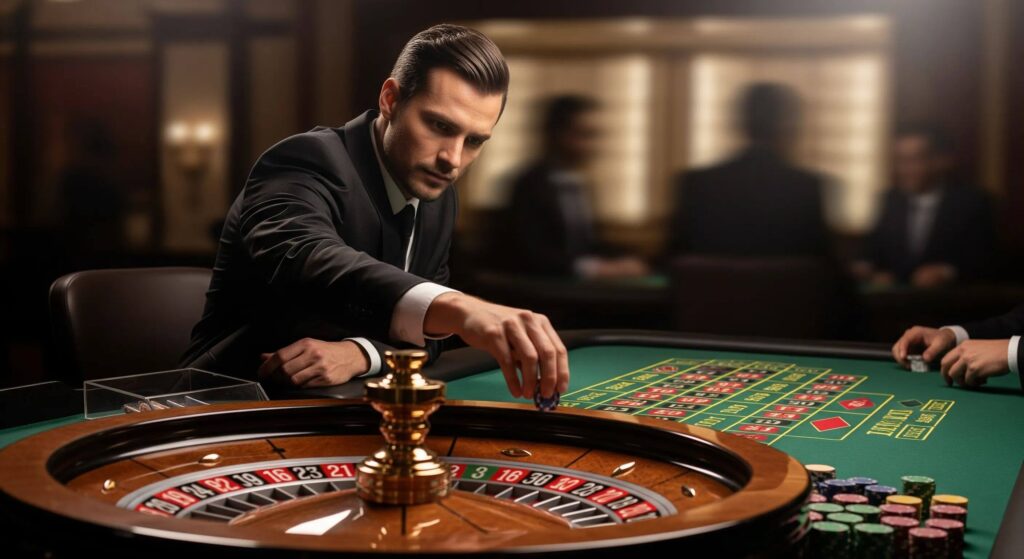House Edge Explained: What Every Gambler Should Know
There’s one principle I’ve seen rookie players misunderstand time and again — the house edge. Many think it’s some vague, harmless number that floats in the background while they spin the reels or place their bets. But let me tell you straight: the house edge is the silent tax on every rupee you bet, the invisible hand that tips the game ever so slightly in favour of the casino. Ignore it, and you’ll bleed chips while wondering why luck’s always against you. The house edge isn’t a conspiracy. It’s mathematics baked right into every game. Casinos don’t need to cheat because the rules do the job just fine. Blackjack, roulette, slots — each game has its set of probabilities and payouts calibrated with surgical precision. That edge is how the casino makes its money and stays in business while still letting you win occasionally, just enough to keep you coming back.
How House Edge Really Works in Practical Terms
Let’s break it down with an example — European roulette. That wheel? It’s got 37 pockets. One zero, and numbers 1 through 36. Bet on red, and 18 of those 37 slots will reward you. That’s a 48.65% chance to win, but you’re only being paid 1:1. The house wins roughly 2.7% of every bet over time — that’s the house edge. It doesn’t sound like much, but over a hundred spins? That’s enough to tell the difference between walking out with a full wallet and calling it a night early. Now take slots — a fan favourite. These babies can have a house edge that runs from 2% all the way to 15% or more. The worst part? You can’t spot it just by looking at the machine. You’ve got to rely on return-to-player (RTP) percentages if the casino even discloses them. Anything above 96% RTP is relatively fair, but make no mistake — even then, the edge is never in your court. For more insights on how to manage your bets, check out this guide on casino bonuses.
Why Gamblers Consistently Underestimate the Edge
Most folks fall for short-term outcomes. Win three times in five spins and suddenly they forget they’re playing a negative expectation game. I’ve sat next to seasoned-looking players who dumped half a lakh chasing a “hot streak” on baccarat, without ever checking the statistical edge. Truth is, unless you’re using a disciplined strategy or exploiting a temporary promotion, that edge will bite.
The Illusion of Control in Skill-Based Games
Even in games where players have influence — like blackjack or poker — the house edge doesn’t disappear, it just softens. Blackjack offers one of the lowest house edges, around 0.5%, but that’s only if you’re playing with perfect basic strategy. Most folks don’t. They split tens, stand on 16 when they shouldn’t, or double down on a weak hand — all stuff that adds basis points back in the casino’s favour. You can lose the edge faster than a flush draw falls apart on the river. Only poker offers a real break, because you’re not playing against the house directly — you’re battling other players. That’s another story altogether, though, with its own nuances and long-term mindset.
Shortcuts That Don’t Work and Myths That Never Die
Here’s a classic rookie mistake I see all too often: chasing losses with higher bets. The Martingale system, for instance — doubling your stake every time you lose — seems logical until you hit the table max or run out of cash. The house edge doesn’t care one bit about your betting pattern. It’s not emotional. It doesn’t reward effort or boldness. It just grinds you down bit by bit if you don’t respect it. Another common myth? That past outcomes somehow influence the future. If red hit five times, black must be next. This is the gambler’s fallacy — and it’s a fast track to broke. Every spin of the roulette wheel is independent. The wheel has no memory, and the edge doesn’t waver.
How to Adapt Your Play Style to Respect the Edge
You don’t beat the house edge — you manage it. Play games with lower edges when you can. Avoid side bets with killer margins. Learn correct strategy for any game involving decisions. Take advantage of external factors that shift the value equation — think better paytables in video poker, advantageous rules on specific blackjack tables, or stacking offers with low rollover requirements like those found in some bonus promotions. Wherever you play, always set a budget, stick to a time limit, and walk away when you’re up. That’s not romantic advice — it’s mathematical warfare. The longer you play, the closer your results get to the expected loss.
Final Thought: A Timeless Reality Most Players Ignore
In real terms, think of the house edge as gravity — ever-present, unavoidable, and invisible to the naked eye. You can fly for a little while, feel invincible during a good run, but eventually that pull brings you back down. Smart players don’t fight it — they learn to glide with the current, not against it. Want to turn things in your favour? Don’t look for lucky charms or betting gimmicks. Understand the landscape. Read the rules. Dig into payout tables. Know when high-volatility works for or against you. And above all, don’t place a bet unless you know the price you’re paying through the edge. That, right there, is the heart of professional-grade gambling — knowing when the odds are worth it, and when it’s best to simply enjoy the view without opening your wallet.

